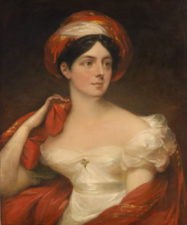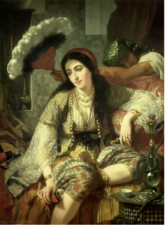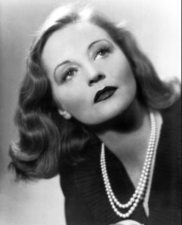It was just a matter of course that I was the one who went to work for Uncle Doug and Pastor Stan Davey. I wasn’t really consulted. They were pastors of the Church of Christ, and I lived with Stan and his wife, for the office [of the Aborigines Advancement League] was set up in the manse. I worked there, too. The office was moved several times before the Aboriginal Girls’ hostel was established in Northcote in a Church of England manse in Cunningham Street.
Twelve or 18 months later, Mum and Dad moved to Melbourne. They became the managers of the hostel, and we lived together as a family again. A garage in the backyard was converted into an office, and it kept expanding as more people came on board. I was the first fulltime employee of the Aborigines Advancement League, as the organisation came to be known.
The hostel provided accommodation mainly for girls going out to paidwork. Before it was established, everyone who came to the city bunked in with relatives. Many stayed with Uncle Doug and Aunty Gladdie, and there was just not enough room! It was difficult for people to get accommodation and there was overcrowding everywhere. Aunty Gladdie in particular worked tirelessly for many years to have a hostel established for young women in Melbourne. It was through her hard work, together with two of her sisters, a brother, Maurice and Doris Blackburn, and Gordon Bryant that the hostel and the Aborigines Advancement League came into being. Those were the names I remember as being closely associated with the early work of the organisation and setting it up. Lions and Apex clubs were helpful, too.
The Aborigines Advancement League was from its inception involved in campaigns, making deputatations to government ministers, the premier and the prime minister. It was at the forefront because it was the only organisation existing in Victoria at that time, which was a voice for the Aboriginal people. Established in 1957, it was instrumental in gaining many, many services for Aboriginal people – better housing and health services in particular. It spawned the organisations that today work for Aboriginal people: most of the people who established the organisations that came later had gone through the league at some time – the Aboriginal childcare agency, the Aboriginal Legal Service, the health service.
Things were done in a quiet way until, in the late 1950s or early 1960s the Aborigines Welfare Board, a government body, tried to close down the Lake Tyers mission. That was when I recall Aboriginal people engaging in marches and public demonstrations. Almost everyone in Victoria came to Melbourne to support the Lake Tyers people, walking through the streets with banners. I was in Tasmania at the time, for it was NAIDOC (National Aboriginal and Islanders Day Organising Committee) day and I went to Hobart to represent the Aborigines Advancement League. I appeared on radio and television and visited universities and colleges.
For that Tasmanian visit, I was the only one available! Everyone else was involved in the march for the Lake Tyers people …
I accompanied Uncle Doug and Stan Davey to many meetings, so I had before me their example of public speaking. I followed what they did, and spoke about the issues in the same way. I was a young woman, so was unable to speak with their breadth and scope, but I was learning all the time and they were great examples. Many other people were activists and public speakers, including the Briggs’ girls, Hyllus Maris (who established Worowa College at Healesville) and others. I would like to remember more of the women, but names like Bruce McGuinness and Gary Foley come easily to mind. Lois Briggs (now Lois Peeler) and Margaret Briggs were around my age and are still working in Aboriginal affairs. All the members of Doug’s family were active, including his daughters Lillian Nichols and Pam Nichols (now Pam Peterson). Ralph Nichols now runs his own business, doing Aboriginal cross-cultural programs in schools and for major events. Those who married and ‘retired’ to raise their families came back into the movement, working on projects or in Aboriginal organisations.
Basically, my career simply ‘happened’. Initially I worked with the league for four years. Then Uncle Doug suggested I go out into the big, wide world, gaining experience in the wider community …
I had no desire to go overseas, and working at the British Government Office (part of the British diplomatic service) didn’t change that. Many members of my extended family, as well as my friends, have gone. Lately, however, I have developed a desire to go. My daughter came back from overseas and has said: ‘You have to go to see this,’ ‘You have to go to see that’. Other friends have said: ‘Oh, Daph, you’d love this or that place.’ Now I think: ‘Well, it does sound interesting when you put it like that.’ But to me, from what I have seen I can’t accept that it would be any better than what we have here in Australia … I am interested in the Middle East and Asia, where English isn’t the first language …
When I left the British Government Office I went to live in Queensland. Some of my friends were there, so I packed 10 suitcases with my clothes and chattels (including saucepans) and off I went. I arrived on the train, together with the suitcases, and stayed in a motel in Brisbane for a week. The I moved into a hostel or boardinghouse for young businesswomen and did some temping for an employment agency, ‘Manpower’. Jobs came regularly for me. I met up with my friends and was thinking seriously about taking a permanent job, when my Dad passed away. I packed up and returned to Victoria, where I lived with Mum in Shepparton for a time.
Then it was back to Melbourne and the league. It was the late 1960s and we were gearing up for the 1967 referendum. The Doug Nichols Hall had been established by that time, and members of the league came in to work, we had photocopiers everywhere, and they were going all the time. We printed thousands and thousands of pamphlets and cards to be handed out at voting booths. Uncle Doug and Stan Davey, as well as the directors of the Aborigines Advancement League, were being interviewed on radio and television constantly. When the referendum was won, we had a huge celebration at the Doug Nichols Hall …
There was need in every Koori community at that time. Koori communities lived along the Murray River, at Dunnstown and Werneth, Mildura, then down to Waubra, Swan Hill, Echuca, Shepparton, throughout Gippsland and at Lake Tyers. There were people at Neerim, Neerim South, Jackson’s Tract, Drouin. Then there was the Western District. A lot of miles were covered. During those times, the only way we were able to keep the league going was through volunteer work and support from the Aboriginal community, and through donations from the general community, and the trades unions. There was no government funding. Now and again some of the ministers or secretaries of a government department might make a personal contribution, but that was it.
The unions played an important part in Aboriginal affairs. One way was through paying for or organising the provision of goods, including food and clothing, to be delivered to our communities throughout Victoria (probalby the trade union movement did this all over Australia). I recall very clearly the people working on the wharves organising through the union for bales and bales of clothing to be sent to Darwin. It was destined for Wave Hill, when the Gurrindgi people were invovled in the Wave Hall walk-off, at the end of the 1960s. They were campaigning, with support from the unions, for equal pay …
Daphne Milward (c) 1996
Daphne Milward has been a member of the Lady (Gladys) Nichols committee and a committe member of Koori Women Mean Business (KWMB), a projects established to offer assistance and advice to Koori women developing their own businesses and community enterprises. At the time of writing she was a director of the Victorian Women’s Trust (VWT) and a member of the (then) Equal Opportunity Commission of Victoria. In 1995 she established her own consultancy firm, Mandala Consulting Services, specialising in community development and in particular in cross-cultural awareness.
This is an extract from ‘Descended from a Matriarch’ in Living Generously – Women Mentoring Women, Jocelynne A. Scutt, ed., Artemis Publishing, Melbourne, Australia , 1996.


